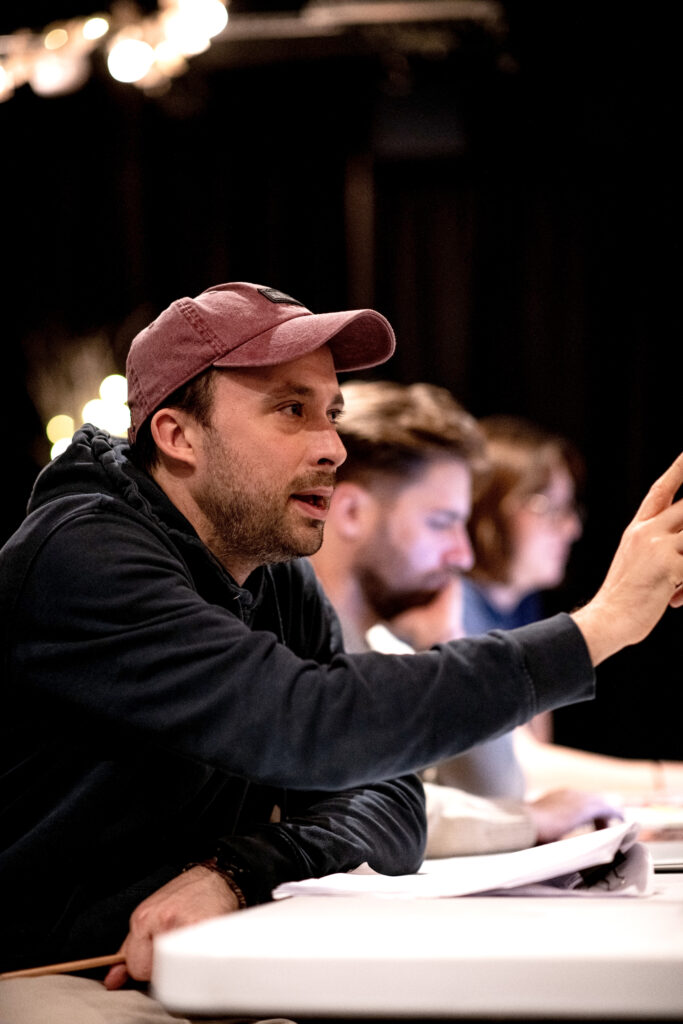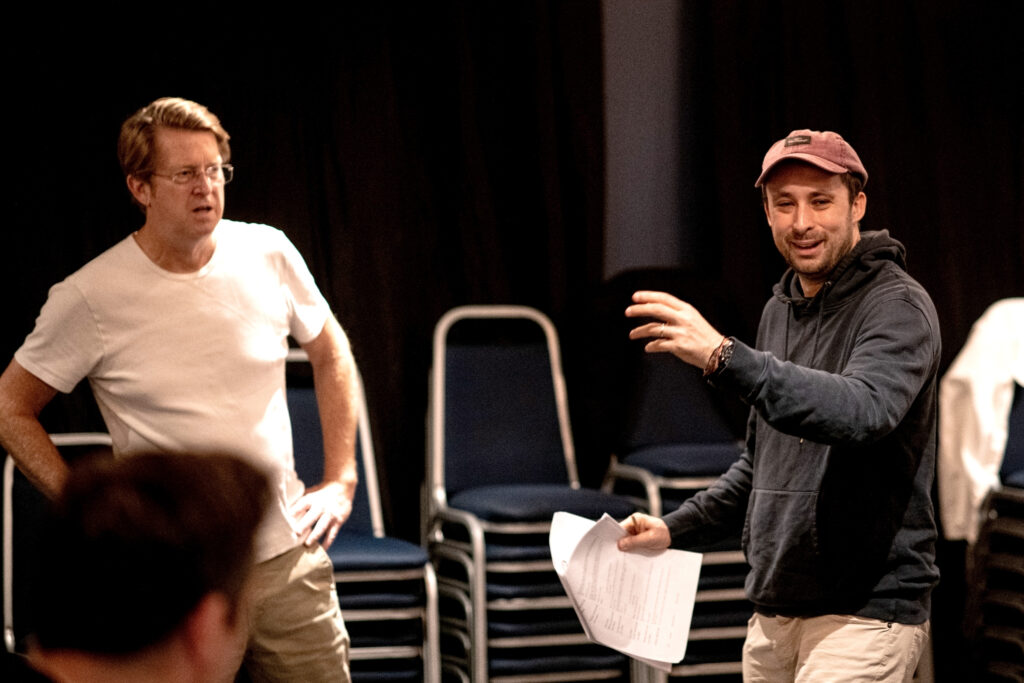
Not many shows open immediately after the festive break but 1979 is bucking the trend, opening for previews at Finborough Theatre on 2 January it provides people who are still getting over their New Year’s Day lunch with something to divert their attention towards, something to look forward to after the break.
Many would agree with 1979 director Jimmy Walters’ sentiments when he suggests that “January is just such a crap month, isn’t it?” We hit that lull, having over-relaxed and probably having eaten ourselves into a state where mundane tasks feel even more onerous. 1979 offers, then, an opportunity to snap out of that with a play that will both entertain and educate.
In 1979, Walters is returning to Finbourgh Theatre for the fifth time having previously directed How to Survive an Apocalypse, Square Rounds, The Trackers of Oxyrhynchus and A Subject of Scandal and Concern. “I think the theatre is really special because it’s so small, but it’s so far-reaching,” he says.
Walters first read Michael Healey’s 2017 play three years ago, but it didn’t feel like the right time to stage a political play in the UK, he says. “It felt like the worst thing in the world was to do a play by politics because it was… maybe that horrible hangover from Brexit where we still weren’t sure what we were doing.”
That changed recently with an interest in politics rising again. “The Rest is Politics is the number one podcast in the country,” Walters points out, also highlighting The News Agents, as an example. “It feels like the younger generation are definitely a lot more engaged. It feels like things have kind of calmed down a bit.”
That’s when Walters thought, “I want to do a play about politics, and then I thought, ‘What about that wonderful script I read…’”
That script was 1979 which is set, funnily enough, in 1979 in Canada. It examines the period of politics when former Canadian Prime Minister, Joe Clark was in power. “Even to this day, most Canadians don’t know who he was,” says Walters of the country’s youngest-ever Prime Minister.

Clark only lasted only six months in power. “He was a very unassuming character, very middle of the road, [a] very funny man privately, but made the great mistake in politics of choosing to act with principle over Machiavellian politics.”
It was that principle, choosing policy over politics as Walters describes it, that caused Clark’s downfall and his commitment to a forgotten era of Canadian politics – “described as a ‘a forgettable blank’ in the play,” adds Walters.
It’s difficult to find a politician in today’s political world who quite aligns with Clark’s policy-based conservatism. “Maybe Rory Stewart,” suggests Walters, “but he’s obviously been turfed out,” he reflects. John Major is a suggestion from less recent history as, “you know, one of the slightly nicer ones.” I might have suggested Ken Clarke… but again: turfed out.
The parallels with today’s politics are much more evident in the play’s Machiavellian characters both within Clark’s Progressive Conservative Party and its opposition, the Liberal Party led by, current Canadian Prime Minister Justin Trudeau’s father, Pierre Trudeau. And that’s where UK audiences will appreciate the play’s “universal themes” despite the play’s Canadian focus.
“There’s huge parallels in terms of some [those] characters. Definitely the Boris’s [Johnson] and [Suella] Bravermans… and the Blairs, to an extent, with characters like Pierre Trudeau.”
Walters was drawn to Michael Healy’s play by a question of motive. “I’ve always been fascinated by [the question,] why do people go into politics? What is the initial reason? Because, it’s not actually, when push comes to shove, a great job.
“You go grey very quickly, you’re on about three hours sleep a night, you spend your days mainly taking abuse on social media, you’re going around on wet Wednesdays around your constituency trying to speak to people and only hearing negatives, so there must be something.”

It must, he thinks, “start from a good place,” as Clark’s ambitions in politics did. Though he stayed in a good place, others got lost along the way. This leads Walters to his second question; power.
“At what point [does it] change?” he asks. “At what point does it become about power?”
He uses Jermyn Corbyn as an example, someone who went from principle and policy until something changed. “When it came to the Brexit vote, he was slightly more muted. The system in place doesn’t allow people to showcase their principles when they start smelling power. So it’s a fascinating dichotomy that I’ve always been very interested in, and the theatricality of it.”
It’s interesting too because the Machiavellian aspects of our politics have become less hidden in very recent times. “I think that it’s become quite unapologetically about staying in power,” says Walters, as Prime Minster Rishi Sunak tries to very publically marry to wings of the Conservative Party in Westminister.
Despite those serious questions, there is also comedy at the heart of the play – it’s “a fast-paced political comedy,” says Walters, and it even features a live projected fact-checker that occasionally undermines the characters. “It serves in a very funny way,” he says.
Walters has been enjoying the rehearsal process with the cast, a fully North American contingent of Samatha Coughlan, Joseph May and Ian Porter. As we speak they’re in the final throws of rehearsals, tightening things up having now figured out the beats and the rhythm of the comedy in the play. Walters adds that he’s “learnt so much about Canada” in the past three weeks from the cast.
“It’s been fascinating,” he says as he looks forward to casting the January blues away and opening a political play at the beginning of a year that he notes could include four major elections in the UK, the United States, Canada and India. A good time to open a play, after all.
1979 is at Finborough Theatre from 2 January to 27 January 2024














